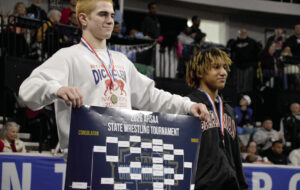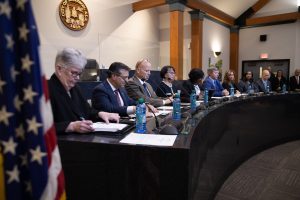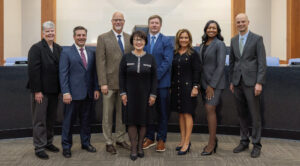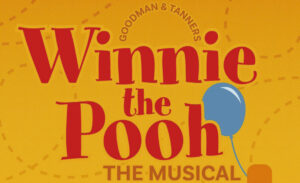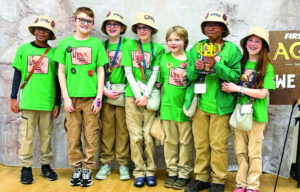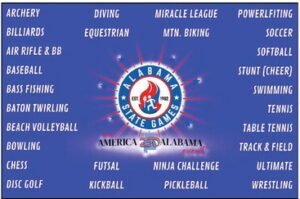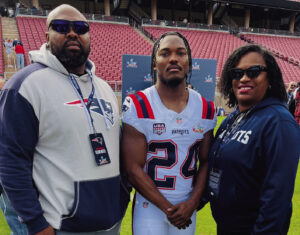Madison City First Class Pre-K Center sees huge success in new way to handle discipline
MADISON – The schools in Madison have gained state-wide and national attention for the many advances in academic programs and techniques. According to Angela Bush, administrator at the Madison City First Class Pre-K Center, Madison is also getting state-wide recognition for the way the Center handles discipline.
Bush gave Madison school board members a presentation Thursday detailing how the Center is incorporating a fairly new discipline technique within their teaching strategy, called Conscious Discipline.
Created by Dr. Becky Bailey, an internationally renowned expert in child developmental psychology, Conscious Discipline is built on the premise of developing discipline within children rather than applying discipline to them.
“It really helps children with self-regulation,” Bush explained to the board members. “We want children to be able to regulate themselves, so that at the end of the year they are not doing the same behaviors they were at the beginning of the year. It helps develop more resilient children and enhance their personal growth.”
“Pre-k can be stressful for little people,” said Nedjra Russell, who also spoke about the program’s success to the school board members. “They are learning new things in a whole new environment and they are expected to just walk through the door ready to learn. Well, we are finding that it is not the case, so we are taking a different approach to how we approach discipline.”
Conscious Discipline was conceived as a classroom management system that helped teachers use conflict as a means to teach children about appropriate behavior and important life skills.
“Traditionally we see discipline as rewards and punishment. If you do this, I will give you that. If you don’t do this, then this is what will happen to you,” said another teacher, Marissa Weir. “In Conscious Discipline the mindset is different.”
Conscious Discipline teaches children to respond, rather than react, during life events. Everyday life events are used as teachable moments and guide children to develop self-control, utilize tools for conflict resolution, boost self-esteem, and foster positive relationships and social skills.
“Conflict is a teachable moment,” Russell said. “For many of us growing up, conflict was something you pushed to the side. You didn’t really deal with the issues. You overcame your feelings, pressed forward and did what you had to do. With Conscious Discipline you begin to teach them how to recognize those emotions and feelings and how to step back.”
Bush said there are seven skills of Conscious Discipline. They are:
Composure- willingness to change your internal state from upset to calm and bring your mind to where your body is.
Encouragement- develop a school family and understand that ‘we are all in this together.’
Assertiveness- learn how to say ‘no’ and having thoughts heard and respected.
Choices – understand that the only person you can “make change is yourself and, in turn, build self-esteem and willpower.
Positive Intent- begin to look for the best in others turning conflict into cooperation.
Empathy- gain an understanding of the moment and validating the emotions of self and others
Consequences- learn that everyone makes mistakes and that they are viewed as opportunities to learn.
“We make sure that we as teachers are present in the moment and seizing moments that are teachable,” Weir said. “We use those opportunities to teach and foster self-regulation within our students. We would never just hand the keys to a 16-year-olds and say go drive. We wouldn’t want to take that same approach with a pre-k student and tell them to just calm down. We want to model, we want to teach.”
Bush said she first learned about the Conscious Discipline approach at the National Conference for Early Childhood Education in 2014. Soon after the conference, she called the State Department of Early Childhood Education and expressed a desire to know more about it. “They informed me the state was working on a pilot program implementing Conscious Discipline, so I said sign us up.”
Since then, Bush said the Pre-K Center has been getting state-wide acknowledgment and recognition for how they have successfully been able to incorporate the new technique. She said they have also seen amazing academic achievement. “Our academic readiness this year has gone off the chart,” she said. It has even improved their own teacher-to-teacher interactions.
“It’s been very successful at home too,” Bush said.
School board members watched a video of a woman explaining how the new approached helped her child. The child’s father had been gone for extended periods of time while on active duty in the military and it had taken a toll on the family. “I am very happy with the progress my child has made and the tools they taught him with conscious discipline to identify his feelings, talk about his feelings and control his responses to those feelings,” said the mother. She also said that her son has been applying those new skills at home with great results.
Russell added that this student went through some very challenging moments at the beginning of the school year. “I never had a child that challenging in my whole teaching career,” she said. “Where he is now is a testament to the beauty of conscious discipline. He will be ready when he goes on.”
“We are seeing throughout the media the increased need for SRO officers in the schools, increased need for counselors within the schools because children are dealing with so much trauma,” Bush said. “We believe teaching the skills through conscious discipline to handle stressful situations at the pre-k level will greatly benefit them for the rest of their lives.”
School board members had nothing but praise for the program. Board member Connie Spears says she volunteers in the car line at the Pre-k Center at the beginning of the school year, and she comes back a few weeks later to read to the students.
“The differences in the children and their ability to explain their feelings is so amazing to me,” she said. “There are many adults who are not able to understand exactly what they are feeling. You can use this all through your life.”
For more information about Conscious Discipline, go to www.consciousdiscipline.com.



